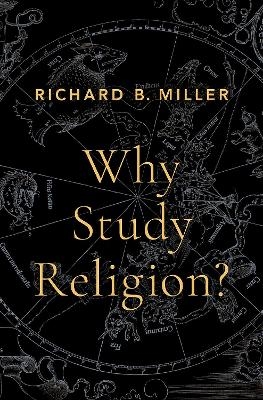
Why Study Religion?
Oxford University Press Inc (Verlag)
978-0-19-756681-7 (ISBN)
Can the study of religion be justified? Scholarship in religion, especially work in "theory and method," is preoccupied with matters of research procedure and thus inarticulate about the goals that motivate scholarship in the field. For that reason, the field suffers from a crisis of rationale. Richard B. Miller identifies six prevailing methodologies in the field, and then offers an alternative framework for thinking about the purposes of the discipline. Shadowing these various methodologies, he notes, is a Weberian scientific ideal for studying religion, one that aspires to value-neutrality. This ideal fortifies a "regime of truth" that undercuts efforts to think normatively and teleologically about the field's purpose and value. Miller's alternative framework, Critical Humanism, theorizes about the ends rather than the means of humanistic scholarship.
Why Study Religion? offers an account of humanistic inquiry that is held together by four values: Post-critical Reasoning, Social Criticism, Cross-cultural Fluency, and Environmental Responsibility. Ordered to such purposes, Miller argues, scholars of religion can relax their commitment to matters of methodological procedure and advocate for the value of studying religion. The future of religious studies will depend on how well it can articulate its goals as a basis for motivating scholarship in the field.
Richard B. Miller is a Laura Spelman Rockefeller Professor of Religion, Politics, and Ethics at the University of Chicago Divinity School. He is the author of Friends and Other Strangers: Studies in Religion, Ethics, and Culture, and the award-winning Interpretations of Conflict: Ethics, Pacifism, and the Just-War Tradition; Casuistry and Modern Ethics: A Poetics of Practical Reasoning; and Terror, Religion, and Liberal Thought.
Acknowledgments
I. A Crisis of Rationale
Chapter 1: On Justifying the Study of Religion
Chapter 2: The Ethics of Religious Studies
II. A Regime of Truth
Chapter 3: Interpretation, Comparison, and the History of Religions
Chapter 4: Scientific Rationality and Causal Explanation
Chapter 5: Existential Symbolism and Theological Anthropology
Chapter 6: Embodied Practice and Materialistic Phenomenology
Chapter 7: Genealogy, Ideology, and Critical Theory
Chapter 8: Philosophy, Normativity, and Metacriticism
III. Purposes, Desires, and Critical Humanism
Chapter 9: Religious Studies and the Values of Critical Humanism
1. The End of Religious Studies
2. Acts and Moral Agency
3. Critical Humanism
4. Four Values
5. Exemplary Works in the Study of Religion
6. Critical Humanism and the Ethics of Religious Studies
Epilogue: Critical Humanism as a Vocation
| Erscheinungsdatum | 13.12.2021 |
|---|---|
| Verlagsort | New York |
| Sprache | englisch |
| Maße | 242 x 166 mm |
| Gewicht | 644 g |
| Themenwelt | Geschichte ► Teilgebiete der Geschichte ► Religionsgeschichte |
| Geisteswissenschaften ► Religion / Theologie | |
| ISBN-10 | 0-19-756681-2 / 0197566812 |
| ISBN-13 | 978-0-19-756681-7 / 9780197566817 |
| Zustand | Neuware |
| Informationen gemäß Produktsicherheitsverordnung (GPSR) | |
| Haben Sie eine Frage zum Produkt? |
aus dem Bereich


